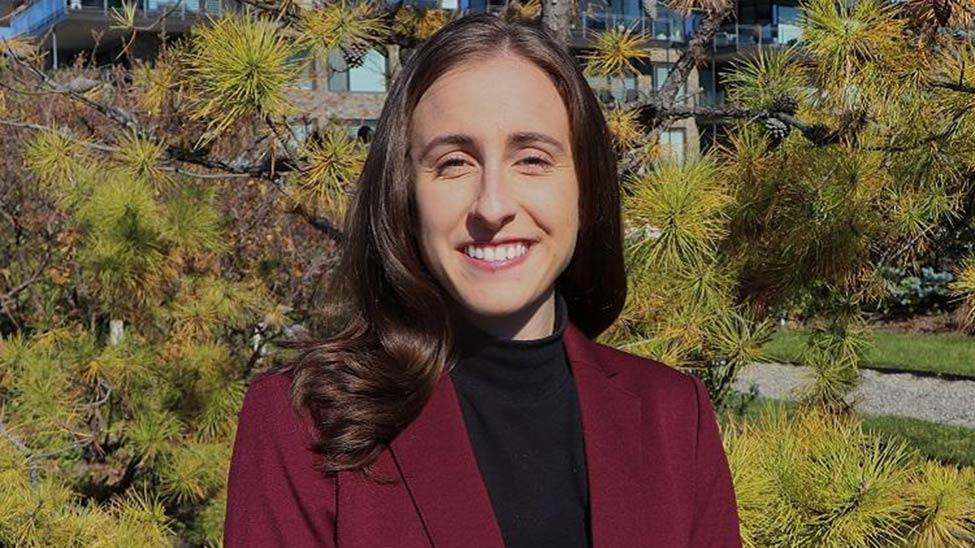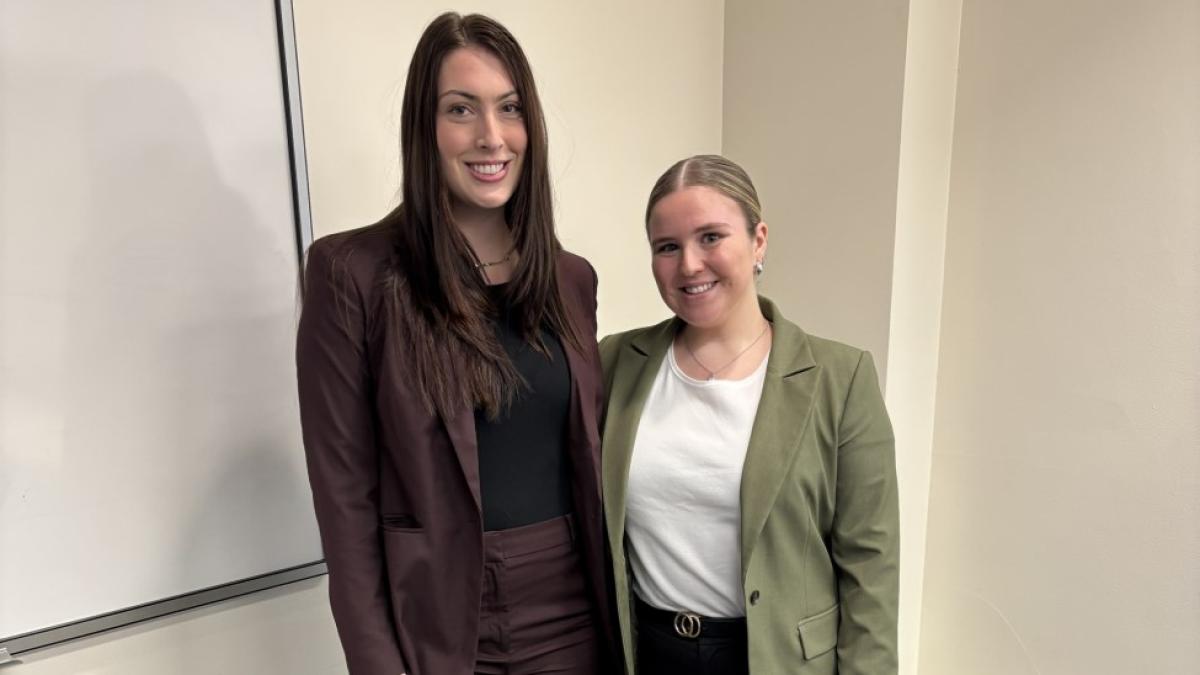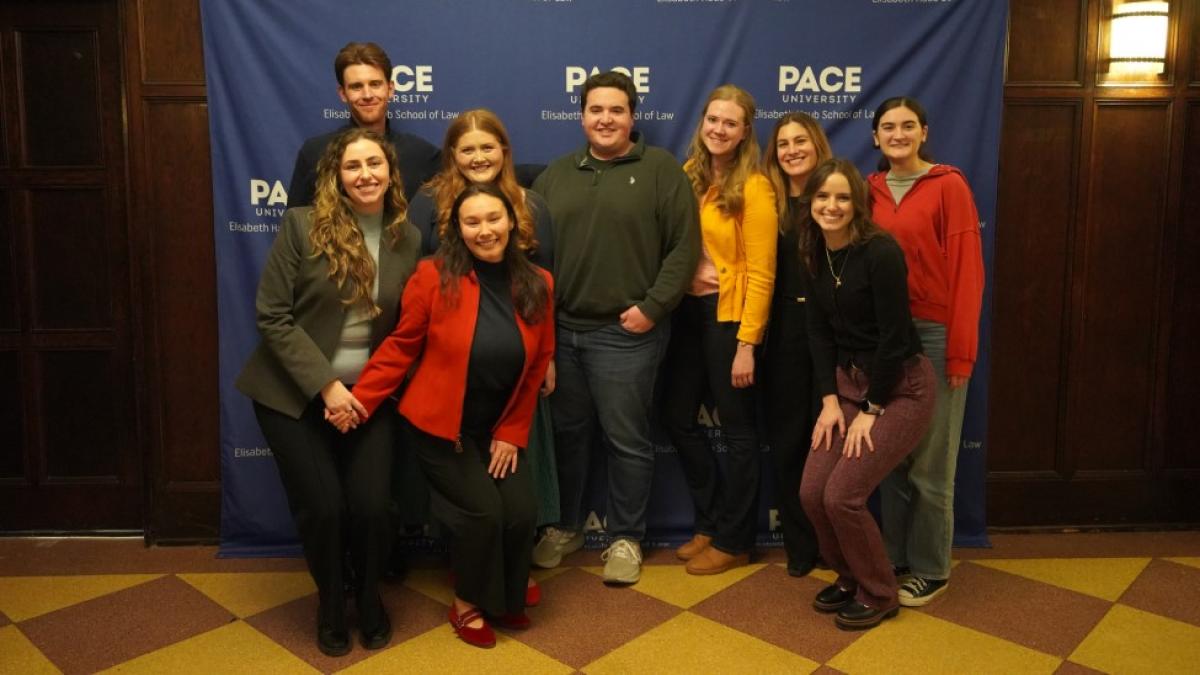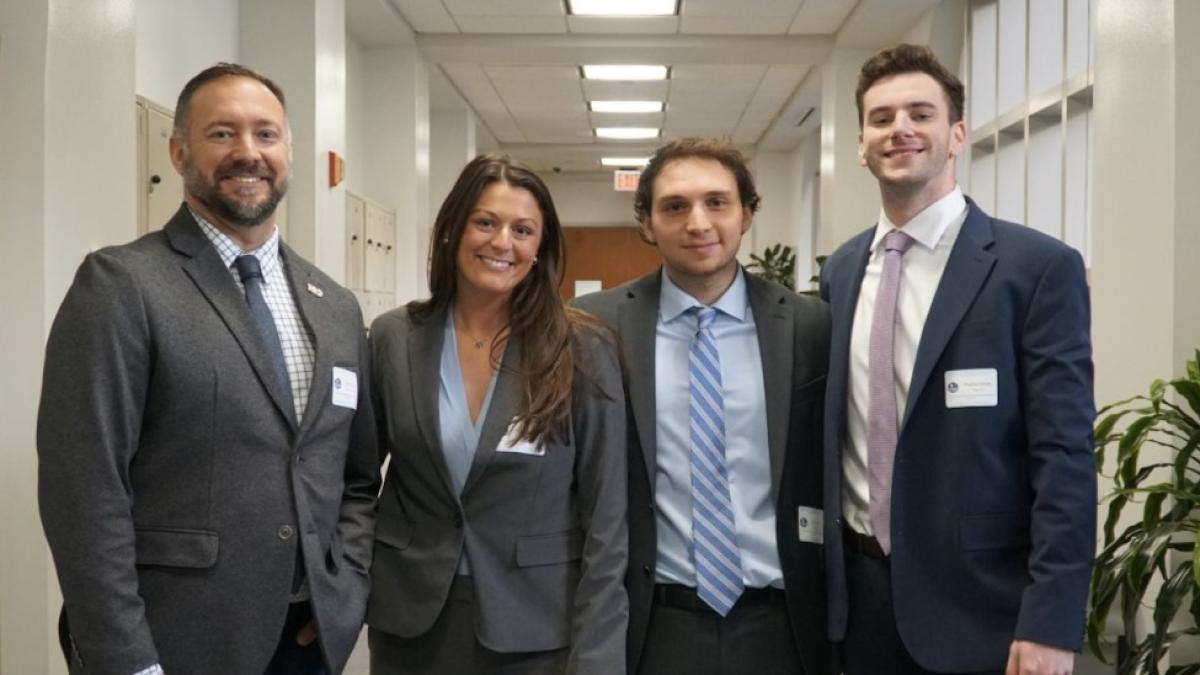
Pace Environmental Law Review Announces First Winner of the John R. Nolon Student Writing Competition, 3L Christen Maccone

At the Pace Environmental Law Review (PELR) Symposium held on October 28, PELR announced Haub Law 3L Christen Maccone as the winner of the John R. Nolon Student Writing Competition, held for the first time this year. Christen’s article entitled, Should Environmental Protection be Through Anthropocentric Rights?, addresses the issues with human-centered, instead of eco-centered, environmental rights, in keeping with the Symposium’s theme of “Environmental Constitutionalism.” Christen’s article will be published in the Pace Environmental Law Review next year.
“The law’s protection of the environment is historically tied to humanity’s use of the environment,” said student competition winner, 3L Christen Maccone. “Constitutional environmental rights, while creating a possibility to afford further protection, inevitably fall short in this same way because of the way constitutions work. Through a biocentric approach, better protections can be afforded to the environment, beyond its known worth to humanity. The Professor John R. Nolon Student Writing Competition gives a spotlight for students amongst scholars, advocates, regulators, policymakers, and other practicing professionals, to share their ideas on a growing area of law. This competition serves as proof that students, though still in school and not yet practicing, can be at the forefront of emerging areas of law.”
This annual competition is open to students at law schools throughout the country. The first place award carries the promise of publication in PELR and a $500 scholarship. The competition, named after Elisabeth Haub School of Law at Pace University Distinguished Professor of Law Emeritus John Nolon, honors Professor Nolon’s dedication to student scholarship. Professor Nolon supervises student research and publications regarding land use, sustainable development, climate change, housing insecurity, racial inequity, and the coronavirus pandemic at Haub Law. He is also co-counsel to the Law School's Land Use Law Center, which he founded in 1993. He served as Adjunct Professor of land use law and policy at the Yale School of the Environment from 2001–2016. Before he joined the law school faculty, he founded and directed the Housing Action Counsel to foster the development of affordable housing.


